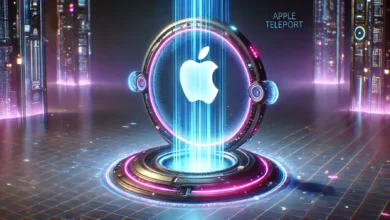Artificial Intelligence: The Future of Technology
Artificial Intelligence: The Future of Technology
Introduction: What is Artificial Intelligence?
Artificial Intelligence (AI) refers to the simulation of human intelligence in machines that are programmed to think, learn, and adapt. These intelligent systems perform tasks typically requiring human cognition, such as understanding natural language, recognizing patterns, solving problems, and making decisions. As AI technology continues to advance, it is becoming an integral part of industries ranging from healthcare and finance to entertainment and education.
How Does Artificial Intelligence Work?
AI operates through a combination of algorithms, data processing, and machine learning. Machine learning, a subset of AI, involves training algorithms to recognize patterns and make predictions based on vast amounts of data. Deep learning, a more advanced form of machine learning, uses neural networks to mimic the human brain’s structure, enhancing AI’s ability to analyze complex information.

Types of Artificial Intelligence
- Narrow AI: Also known as weak AI, narrow AI is designed to perform a specific task, such as voice recognition in virtual assistants like Siri or Alexa.
- General AI: General AI, or strong AI, refers to systems with the cognitive abilities of a human, capable of understanding and learning any intellectual task.
- Superintelligent AI: A theoretical form of AI that surpasses human intelligence, potentially revolutionizing industries and daily life.
Applications of Artificial Intelligence
AI is transforming various sectors through its wide range of applications:
- Healthcare: AI aids in diagnosing diseases, personalizing treatments, and enhancing medical research.
- Finance: Automated trading, fraud detection, and customer service chatbots rely on AI for efficiency and accuracy.
- Education: AI-driven tools provide personalized learning experiences and automate administrative tasks.
- Entertainment: Streaming services use AI algorithms to recommend content based on user preferences.
- Transportation: Self-driving cars and traffic management systems leverage AI to improve safety and efficiency.
The Benefits of Artificial Intelligence
- Increased Efficiency: AI automates repetitive tasks, allowing humans to focus on more complex activities.
- Improved Accuracy: Machine learning algorithms can analyze large datasets with precision, reducing the likelihood of errors.
- Enhanced Decision-Making: AI systems analyze data and provide insights that help businesses and organizations make informed decisions.
Challenges and Ethical Considerations
Despite its benefits, AI presents challenges such as data privacy, job displacement, and ethical concerns surrounding autonomous systems. It is essential to implement robust regulations and ethical guidelines to ensure responsible AI development.
Conclusion: The Future of Artificial Intelligence
Artificial Intelligence is rapidly evolving, offering opportunities to revolutionize industries and improve everyday life. As AI technologies become more sophisticated, they hold the potential to create a future where intelligent systems seamlessly integrate into our lives, enhancing productivity, innovation, and overall quality of life.
FAQ: Frequently Asked Questions about Artificial Intelligence
What is Artificial Intelligence?
Artificial Intelligence (AI) refers to the development of computer systems capable of performing tasks that typically require human intelligence, such as understanding language, recognizing patterns, solving problems, and making decisions.
How is AI used in everyday life?
AI is used in everyday applications such as virtual assistants (e.g., Siri, Alexa), recommendation systems (e.g., Netflix, Amazon), autonomous vehicles, smart home devices, and personalized marketing.
What are the benefits of Artificial Intelligence?
AI offers numerous benefits, including increased efficiency, improved accuracy, enhanced decision-making, and automation of repetitive tasks.
Are there any risks associated with AI?
Yes, potential risks include job displacement, data privacy issues, biased algorithms, and ethical concerns surrounding autonomous systems. Proper regulations and guidelines are necessary to mitigate these risks.
What is the future of Artificial Intelligence?
The future of AI holds immense potential for innovation across industries, from healthcare and education to finance and entertainment. As AI technology advances, it may lead to smarter systems that improve productivity, efficiency, and quality of life.


